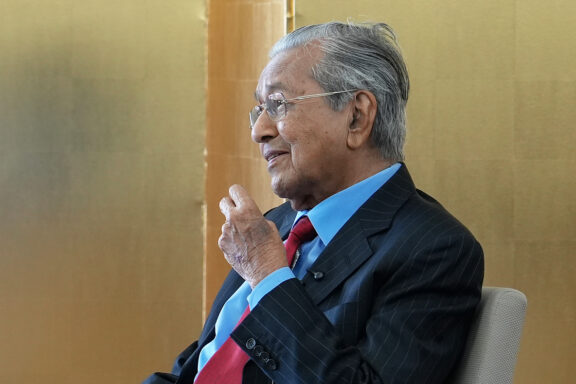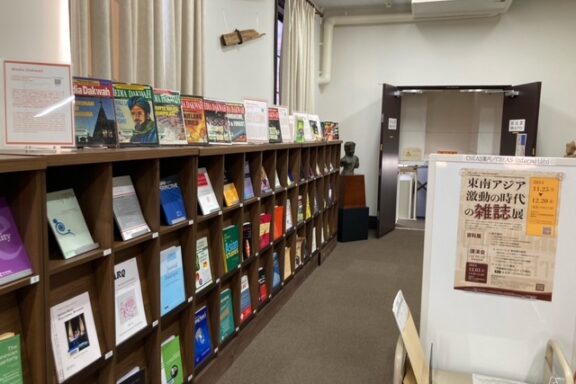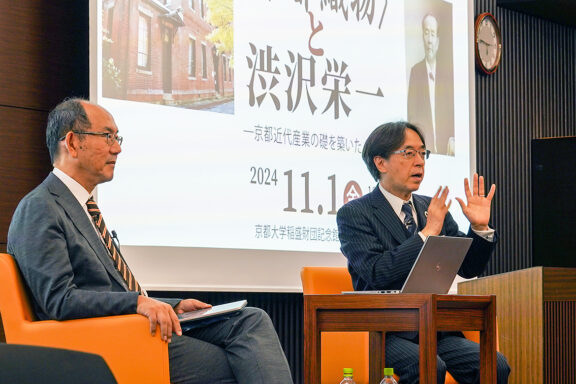Genta Kuno (Area Studies, Urban Studies)

The 2024 joint conference of the Korea Southeast Asian Studies Association (KASEAS) and the Japan Society for Southeast Asian Studies (JSSEAS) was held from August 29 to September 1 in Busan, South Korea with the theme of “Searching for Southeast Asian Powers and Wisdom in the Turmoil World.” Initially, the Japanese delegation planned to attend in person, but due to a typhoon, a hybrid format was adopted and most Japanese, including me, participated online.
Whenever I attend conferences on Southeast Asia, I am often reminded of the ambiguity of the concept of “Southeast Asia” as a region. Although we area scholars understand the special nature of categorizing countries and sub-groups with different cultural, environmental, and political contexts under the single banner of “Southeast Asia,” we still gather to discuss the region as one entity, or research subject. In his keynote address, Professor Nagatsu Kazufumi traced the origins of this “peculiar” regional conceptualization, focusing on studies of the “Southeast Asian Maritime World” in Japan, using sea cucumbers and sea people as key words. His talk reinforced my belief that while the label of Southeast Asia may be unique and even fragile, it is supported by the distinct academic traditions that have developed in each country. As such, at least in my view, international conferences like this one are valuable not only for providing a space to share research outcomes, but also as a place to experience the diversity of academic traditions.
Speaking of diversity, the conference’s range of topics was impressive. Japanese participants presented in five English-language panels: “Diaspora, Interface, and Negotiation: Understanding Southeast Asia’s Dynamics from the Perspective of Sea Peoples;” “Social Media, Discourse Creation, and Social Change;” “Finance, Investment, and Political Economy;” “Power, Knowledge, and History;” and “Division and Distinction: Identity Politics.” Japanese presenters were assigned Korean commentators, and vice versa. I was fortunate to participate as both a presenter and a commentator.
As a commentator, I handled a presentation on Myanmar’s anti-junta movement by Dr. Jinyoung Park (Institute for Southeast Asian Studies, Jeonbuk National University). Dr. Park explained how digital platforms serve as a fundraising tool for the anti-junta activity of diaspora communities. I was surprised to learn that some platforms raise funds by facilitating investments in land that the military regime “illegally” controls. Given my interest in urban housing issues in Indonesia—where land conflicts between developers and residents are common—I raised concerns about whether investing in land forcefully held by the regime today may lead to future conflicts after the regime is removed. However, through the Q&A session, I learned that such a framework of potential land conflicts cannot be easily applied to the situation of Myanmar’s anti-junta supporters. In this case, digitally trading land confiscated by the military not only supports the resistance movement economically, but also represents resistance in itself and is important for conceptually maintaining the resistance movement.stance itself.
For area scholars, at least for myself, it is often daunting to pose simple questions about phenomena outside our area of expertise for fear that our queries may reveal a lack of background knowledge. However, I learned that even a straightforward question can spark an interesting exploration. It can sometimes act as a mirror onto which we can project our thoughts and interests, and through which we can gain new knowledge about our interests and thought processes. Indeed, through my role as a commentator in this conference, I not only learned about the resistance movement in Myanmar, but also realized that my interest in land conflicts may be limited to the contemporary situation in Indonesia.
As a presenter, I had the rare opportunity to receive feedback from an author whose work I have long cited and admired. Dr. Jeehun Kim (Inha University), who has documented the development of gated communities in the inner city of Jakarta in the early post-reform era of the late-1990s, was the commentator for my presentation. Using extensive spatial data on the number of gates in Jakarta and election results during the past decade, I empirically analyzed the relationship between gated communities and voting behavior. Contrary to findings in Western cities, where gated communities typically align with conservative leanings, my study demonstrates that in Jakarta, areas with higher densities of gates are associated with less support for candidates with illiberal positions. Given these findings, I propose the concept of “illiberal escapism” to describe the condition in Jakarta, where residents of gated communities socially distance themselves from urban insecurities and public spaces while politically opposing illiberal influences.
During the Q&A session, Dr. Kim not only provided detailed comments, but also shared how he first encountered a gate in an alley in Jakarta, was surprised, and began to explore it as a research subject. Through this exchange with Dr. Kim, I was able to revisit the initial excitement that motivated me to enter the academic world. It was a unique experience to share this emotion with someone I had only known through text and who had been, until now, far away.
The 2024 conference demonstrated the wisdom and power of spaces that allow us to transcend perspectives that may be limited to the regions where we have been trained and conduct our work. Meeting in such spaces is essential for researchers like me—and perhaps for Southeast Asian studies itself—to endure in this turbulent world. I sincerely hope that the next conference will be held in person.

This article is also available in Japanese. >>
「越境による遭遇:2024年度韓日東南アジア学会を振り返って」
(久納源太)





